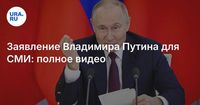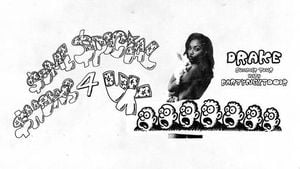Russian President Vladimir Putin addressed the media following a series of international meetings held during the 80th anniversary of Victory Day. The event, which took place from May 7 to May 10, 2025, saw Putin engage in approximately two dozen discussions with foreign leaders, including notable figures such as Chinese President Xi Jinping, Serbian President Aleksandar Vucic, Slovak Prime Minister Robert Fico, and Brazilian President Lula da Silva.
During these commemorative events, Putin emphasized the collective contributions of those who fought against Nazism. He acknowledged the sacrifices made by allies in the anti-Hitler coalition, soldiers from China, participants in the anti-fascist resistance in Europe, and fighters from liberation movements in Africa and the Asia-Pacific region, as well as volunteers from Latin America. "We honor everyone who contributed to the common victory over Nazism," he stated.
Particular attention was given to representatives from North Korea, whose military units did not participate in the parade, yet high-ranking officials were present on Red Square and met with Putin. The Russian leader expressed gratitude to the soldiers and commanders of North Korean special forces who collaborated with Russian troops in operations to liberate border areas of the Kursk region. He praised their courage, heroism, and high level of professionalism.
Putin also acknowledged the political steadfastness of leaders from Serbia, Slovakia, and Bosnia and Herzegovina, who demonstrated "political courage and a firm, righteous position" despite facing external pressures. He remarked that attempts to intimidate participants in the Moscow celebrations failed, highlighting that those who attended were leaders of character and conviction.
Expressing optimism, Putin conveyed hopes for a gradual restoration of constructive relations with European nations, despite ongoing unfriendly communication from some partners. He noted, "We see attempts to communicate with us in an unpleasant manner, essentially through ultimatums."
Turning to the ongoing conflict in Ukraine, Putin reiterated that Russia had consistently initiated peace proposals, which he claimed were systematically sabotaged by the Ukrainian side. He provided specific examples, including around 130 violations by the Ukrainian Armed Forces during a ceasefire aimed at strikes on energy facilities, and nearly 5,000 ceasefire violations recorded during the Easter truce.
Despite these challenges, Putin announced a three-day truce for the Victory Day celebrations, leaving open the possibility of extending it after assessing the situation. However, he noted that Ukraine ignored this offer, as significant attacks were recorded between May 6 and May 7, involving 524 unmanned aerial vehicles and Western-made rockets.
Putin proposed to initiate negotiations without preconditions, suggesting that talks could take place in Istanbul, where previous rounds were held. He emphasized that Russia is prepared for serious discussions aimed at resolving the root causes of the conflict and establishing a long-term peace. "We propose to resume negotiations that were interrupted by the Ukrainian side in late 2022, without any preliminary conditions," he stated.
In his remarks, Putin questioned, "What's wrong with that?" He expressed hope that those genuinely seeking peace would support this initiative. The Russian president concluded his speech around 2:00 AM, stating, "I dismiss you with God," and the event was conducted without questions from the press.
Looking ahead, discussions with Turkish President Recep Tayyip Erdogan are planned for May 14, 2025, regarding the potential for negotiations in Istanbul on May 15. The Kremlin is awaiting Ukraine's response to Russia's proposal to resume direct talks.
While the situation remains tense, the Russian government is keen to emphasize its readiness for dialogue. Putin's statements reflect a desire to engage constructively, despite the backdrop of ongoing military operations. As the world watches, the next steps in this complex geopolitical landscape will be crucial in determining the future of Russian-Ukrainian relations.
In contrast, discussions in Ukraine have also been taking place, with Ukrainian leadership meeting with allies, including French President Emmanuel Macron, German Chancellor Friedrich Merz, British Prime Minister Keir Starmer, and Polish Prime Minister Donald Tusk. They expressed readiness for a comprehensive ceasefire lasting at least 30 days, contingent on Russia's agreement and monitoring assurances.
The outcome of these diplomatic efforts remains uncertain, but both sides appear to be navigating a complex web of negotiations and military strategy as they seek to address the ongoing conflict and its implications for regional stability.




